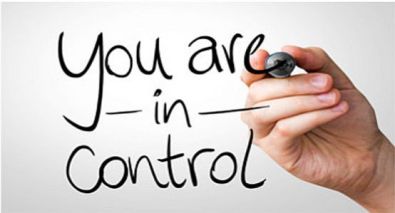
This post is a complement to a podcast episode of Social Entrepreneur with Nathan A. Webster, of which I am a monthly contributor. Listen to the episode below!
We’re all working our hearts out to help improve the world, through the organizations we work with and for. But we can only give to others as much as we have given to ourselves, so it’s important to talk about how to stay sane and thrive as a nonprofit fundraiser.
Not taking it all on
Fundraisers have a tough job. They have organizations relying on them, and therefore people who receive services relying on them. After all, this work can’t be done without the funds to support it.
As someone who works in fundraising, it can be easy to take on the pressure, especially if budgets are not being balanced and money is not coming in. But this is too much to take on as one individual person. Fundraising is too volatile of a practice to have any one person to blame. You could work for hours on a mail piece that raises a small amount of money or you could get an unsolicited donation that blows everything out of the water. The point is, it is not solely on your shoulders if the money does not come in. You cannot take on the pressure that if your work does not produce the money you were expecting, you failed. There are too many other factors to consider. So let that go, and hopefully, that helps you feel better and stop worrying.
Communicating
A lot of stress comes from not fully understanding expectations, from your boss or your board. When there are misunderstandings, it can be a huge point of stress. Communicate as much as you can with your boss or your board about what you think your priorities are, what you are working on, and what you aren’t working on. That way, they can let you know in advance if they have a different idea. And you’ll feel better that you guys are on the same page.
Staying Organized
Lists…. Ahhhh. OK, I know not everyone is like me and feels better about their projects after making a list. But I know many of us are! Figure out what planning mechanism works best for you and stick to it. Do you like spreadsheets? Post-it notes? Whatever it is, stay organized as much as possible. Having something to refer to every day about your tasks can help you stay sane.
Taking breaks
Did you eat lunch at your desk today? How about yesterday? As much as possible, take breaks. If you’re able to eat your lunch away from your desk, do it! Getting out of your work environment can relax your mind and get you in a better headspace. Sometimes, it can even help you solve a problem. There have been many times where I have not been able to figure something out, I’ve walked away from my desk, and came up with the idea as soon as I sat back down.
Lunch breaks are nice, but there is something else equally as important: vacations. Make sure to schedule and go on vacation. Do as much prep work in advance, over-communicate to others when you will be on vacation, and set an out of office email for when you will be away. Then, don’t check email!!! Even glancing through will just get you back in the mindset of work mode. When you’re on vacation, don’t dwell on what may or may not be happening at the office. It will all get sorted out. And if it makes you anxious, tell one person you trust that they can text you with anything urgent.
No email outside of work
Speaking of email outside of work… try not to check it so much. If you heavily rely on that tactic now, try to wean yourself off. Go in phases… try not checking email from Friday night to Sunday morning, then all weekend, then no weekday evenings… once you get into the habit of not responding to emails on off hours, your coworkers will adapt to you.
In conclusion
At the end of the day, although we’re doing important work, many of our tasks have arbitrary, internal deadlines. If you’re coming up on something stressful, see if you can shift any of the timeline. Breathe, and remember you are doing great work!
-N.C.








